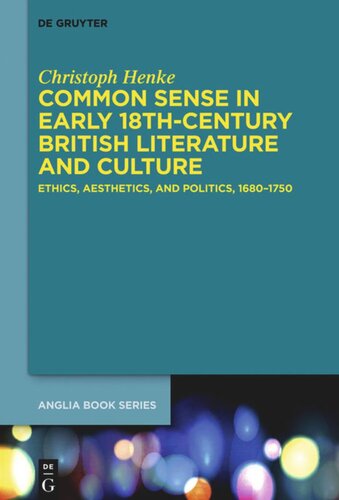

Most ebook files are in PDF format, so you can easily read them using various software such as Foxit Reader or directly on the Google Chrome browser.
Some ebook files are released by publishers in other formats such as .awz, .mobi, .epub, .fb2, etc. You may need to install specific software to read these formats on mobile/PC, such as Calibre.
Please read the tutorial at this link: https://ebookbell.com/faq
We offer FREE conversion to the popular formats you request; however, this may take some time. Therefore, right after payment, please email us, and we will try to provide the service as quickly as possible.
For some exceptional file formats or broken links (if any), please refrain from opening any disputes. Instead, email us first, and we will try to assist within a maximum of 6 hours.
EbookBell Team

4.7
56 reviewsWhile the popular talk of English common sense in the eighteenth century might seem a by-product of familiar Enlightenment discourses of rationalism and empiricism, this book argues that terms such as ‘common sense’ or ‘good sense’ are not simply synonyms of applied reason. On the contrary, the discourse of common sense is shaped by a defensive impulse against the totalizing intellectual regimes of the Enlightenment and the cultural climate of change they promote, in order to contain the unbounded discursive proliferation of modern learning. Hence, common sense discourse has a vital regulatory function in cultural negotiations of political and intellectual change in eighteenth-century Britain against the backdrop of patriotic national self-concepts. This study discusses early eighteenth-century common sense in four broad complexes, as to its discursive functions that are ethical (which at that time implies aesthetic as well), transgressive (as a corrective), political (in patriotic constructs of the nation), and repressive (of otherness). The selection of texts in this study strikes a balance between dominant literary culture – Swift, Pope, Defoe, Fielding, Johnson – and the periphery, such as pamphlets and magazine essays, satiric poems and patriotic songs.